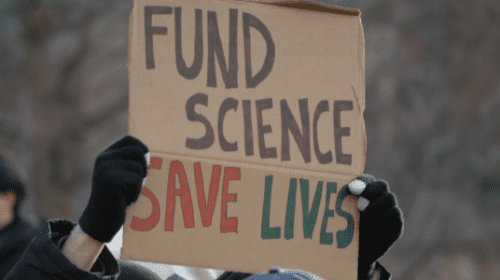Many factors shape a person’s well-being. This can present a unique and, many times, complex challenge for someone struggling with mental health and addiction challenges and their healthcare providers.
Co-occurring disorders, or dual diagnosis or comorbidity, refer to the simultaneous presence of a mental health disorder and a substance use disorder. We use these terms interchangeably.
Approximately 9.2 million adults in the United States have a co-occurring disorder, according to the 2021 National Survey on Drug Use and Health done by the Substance Abuse and Mental Health Services Administration (SAMHSA).
Addressing and treating mental health and addiction issues simultaneously is critical for well-being and offers a more comprehensive and practical recovery approach.
Understanding Co-Occurring Disorders
According to the SAMHSA, individuals with co-occurring disorders have a higher likelihood of hospitalization than those with only one condition alone.
Common mental health disorders associated with addiction:
- Generalized anxiety disorder
- Panic disorder
- Post-traumatic stress disorder
- Depression
- Bipolar disorder
- ADHD
- Borderline personality disorder
- Antisocial personality disorder
There is also a high prevalence of co-occurring disorders among youth. For example, kids who have ADHD are at higher risk of having co-occurring mental health and behavioral problems, including substance use disorders (SUDs).¹ Further research needs to be done on the adolescent population.
The most common mental health issues seen in SUD treatment include:
Anxiety
Anxiety disorders are the most common mental health struggle in the United States, with more than 40 million adults affected. All people with anxiety disorders have one thing in common: persistent, excessive fear or worry in situations that are not threatening, according to the National Alliance on Mental Illness (NAMI).
Some common signs of anxiety include:
- Nervousness
- Restlessness or Irritability
- Increased Heart Rate
- Hyperventilation
- Sweating
- Trembling
- Weakness or Fatigue
- Trouble Concentrating and Focusing
- Trouble Sleeping
- Gastrointestinal Issues
- Difficulty Controlling Worry
- Avoidance of Triggers
Depression
Depression is one of the most common mental health challenges in the United States. According to the National Survey on Drug Use and Health (NSDUH), 21 million United States adults had at least one major depressive episode in 2020.
Each person struggling with depression will have varying symptoms. Many people with depression have symptoms that significantly impact their ability to carry out daily activities or to care for themselves and others.
Some common signs of depression include:
- Powerful Feelings of Melancholy
- Hopelessness and Pessimism
- Anxiety and Irritability
- Feelings of Worthlessness and Guilt
- Loss of Interest
- Fatigue and Low Energy
- Digestive Problems
- Thoughts of Suicide
- Weight Loss and Loss of Appetite
- Joint and Muscle Pain
Bipolar Disorder
In the United States, bipolar disorder affects approximately 5.7 million adults every year, according to the National Institute of Mental Health (NIMH). People with bipolar typically begin to show symptoms in their mid-20s, and the disorder tends to run in families.
Many people with bipolar disorder are misdiagnosed initially, but many also have other mental health challenges. In addition, some who experience severe manic or depressive episodes due to their bipolar disorder also have psychosis symptoms like hallucinations or delusions.
Some common signs of bipolar disorder include:
- Extreme Fluctuations in Mood
- Excess of Energy
- Increased Levels of Activity
- Jumpy or Wired Feeling
- Difficulty Sleeping
- Accelerated and Unfocused Speech
- Anxiety and Irritability
- Risky Behavior (Sexual, Financial, Etc.)
- Feelings of Hopelessness and Desperation
- Decreased Energy
- Inability to Enjoy Life
- Constant Fear and Worry
- Inability to Concentrate
- Extreme Changes in Diet
- Fatigue and Exhaustion
PTSD
One of the most common long-term mental health challenges is post-traumatic stress disorder (PTSD). According to the National Center for PTSD, about 6% of people in the United States will experience it at some point, and anyone can develop it anytime.
It is common for people with PTSD to feel stressed or frightened in safe situations. Many internalize their trauma and may turn to self-medicate with drugs or alcohol.
Some common signs of PTSD include:
- Agitation
- Irritability
- Hostility
- Hypervigilance
- Self-Destructive Behavior
- Social Isolation
- Flashback
- Fear
- Severe Anxiety
- Mistrust
If you or your loved one is struggling with any of the above-listed symptoms, call for help today at 1 (855) 954-1194. The professionals at Recovery Unplugged are available 24/7.
Diagnosing Co-Occurring Disorders
Early detection and diagnosis ensure people get proper treatment and support for their struggles. However, the diagnosing process can be complex and varies by person.
Here’s a look at what you can expect:
Assessment
If you are working with a primary physician, they may refer you to mental health professionals like a psychologist, psychiatrist, or addiction specialist. Upon meeting, they will gather your medical history, discuss your concerns, and ask about your symptoms and other health issues.
The initial assessment is typically done in an office or exam room setting. You can expect questions about your substance use, mental health, and your history with substances, including your family history. It’s not easy, but it’s important to be honest and give your full attention to the process.
Evaluation and Screening
Next, you will likely receive a comprehensive evaluation to assess your substance use and mental health. The evaluation may include interviews, questionnaires, and cognitive and behavioral assessments. During this process, you’ll work with a professional to uncover the underlying causes of your addiction and mental health issues.
This process may be completed alongside your initial assessment or during a separate appointment. This also will likely include a medical evaluation.
The screening aims to evaluate the severity and impact of both disorders and identify specific patterns so your treatment team can provide you with the best care tailored to your specific needs.
Collaboration
You will likely visit various providers during your assessment and throughout your treatment. Your providers will work together, share information, and suggest treatment options. Their collaborative expertise will ensure an accurate diagnosis and proper treatment plan.
Diagnostic Criteria
Your healthcare team will use the Diagnostic and Statistical Manual of Mental Disorders (DSM-5) criteria to properly diagnose your specific mental health disorder and substance use disorder. This will help them to identify ways to best support you going forward.
Treatment plan
Once your healthcare team confirms your diagnosis, they will develop an integrated treatment plan to address your mental health and substance use disorders together.
Your treatment plan may include various supports, including psychotherapy, support groups, behavioral interventions, medication management, and lifestyle adjustments. You may also be referred to enter into inpatient or outpatient treatment.
Dual-Diagnosis Treatment
Regardless of a person’s history, an integrated treatment approach is essential for addressing substance abuse problems and mental health challenges together.
Navigating this complex landscape demands a collaborative effort between the individual, their support network, and healthcare providers.
Mental health & SUD treatment
After detoxification, if necessary, a person may enter a treatment facility for their substance abuse issues. People with substance abuse disorders are at an increased risk for relapse without treatment for their co-occurring disorders.
Mental health treatment for co-occurring disorders involves a comprehensive approach that addresses the mental health condition and substance abuse issues.
Many treatment centers use the following:
- Medication
- Individual therapy
- Group therapy
- Support groups
- Aftercare programming
The SAMHSA has published guideline protocols for best practices when treating people with co-occurring disorders:
Risks of Untreated Co-Occurring Disorders
According to the State of Mental Health in America Report, 57% of adults with a mental illness receive no treatment. Untreated co-occurring disorders increase a person’s addiction recovery risk.
There is a complex relationship between mental health and addiction issues, and the two are often interconnected. Treating one without the other, or not treating them at all, will cause a person to continue on an unhealthy path.
Attempting to overcome addiction without proper treatment for your mental health issues may increase your mental health struggles, and you may struggle to cope with emotional distress. Some turn to self-medication to escape their psychological pain, leading to worsening mental health and addiction symptoms.
Untreated co-occurring disorders can hinder a person’s willingness to engage effectively in treatment programs or reduce their commitment to recovery. In addition, there is an increased risk of relapse without treatment for a person’s SUD and mental health condition.
Dual-Diagnosis Treatment at Recovery Unplugged
We use an individualized approach to addiction treatment at all of our facilities and throughout our online programming. We have multiple treatment options to address your unique recovery needs and work with your lifestyle.
Music is our medicine. Our Music Assisted Treatment approach allows you to leverage the healing power of music and provide relief for your mental health challenges and SUDs.
Recovery Unplugged offers comprehensive for a variety of dual-diagnosis mental health issues, including:
- Depression
- Anxiety
- Bipolar Disorder
- PTSD
- Conduct Disorders
- Attention Deficit Hyperactivity Disorder
It’s critical to recognize the relationship between mental health and addiction and to address your co-occurring disorders with the help of a trained professional.
Recovery is not a linear path or a destination. For many, it’s a life-long battle that requires daily work and intentional awareness about yourself and the world around you. Remember, you’re not alone. With the proper support, you can achieve sobriety and live a fulfilling life in recovery.
Don’t let your addiction and mental health issues continue to control your life. Try treatment today and start your path to recovery with us.
If you or someone you know is struggling with addiction, help is not far away. Call Recovery Unplugged today at 1 (855) 975-1757. Our experienced professionals are available 24/7, every day of the year.

























